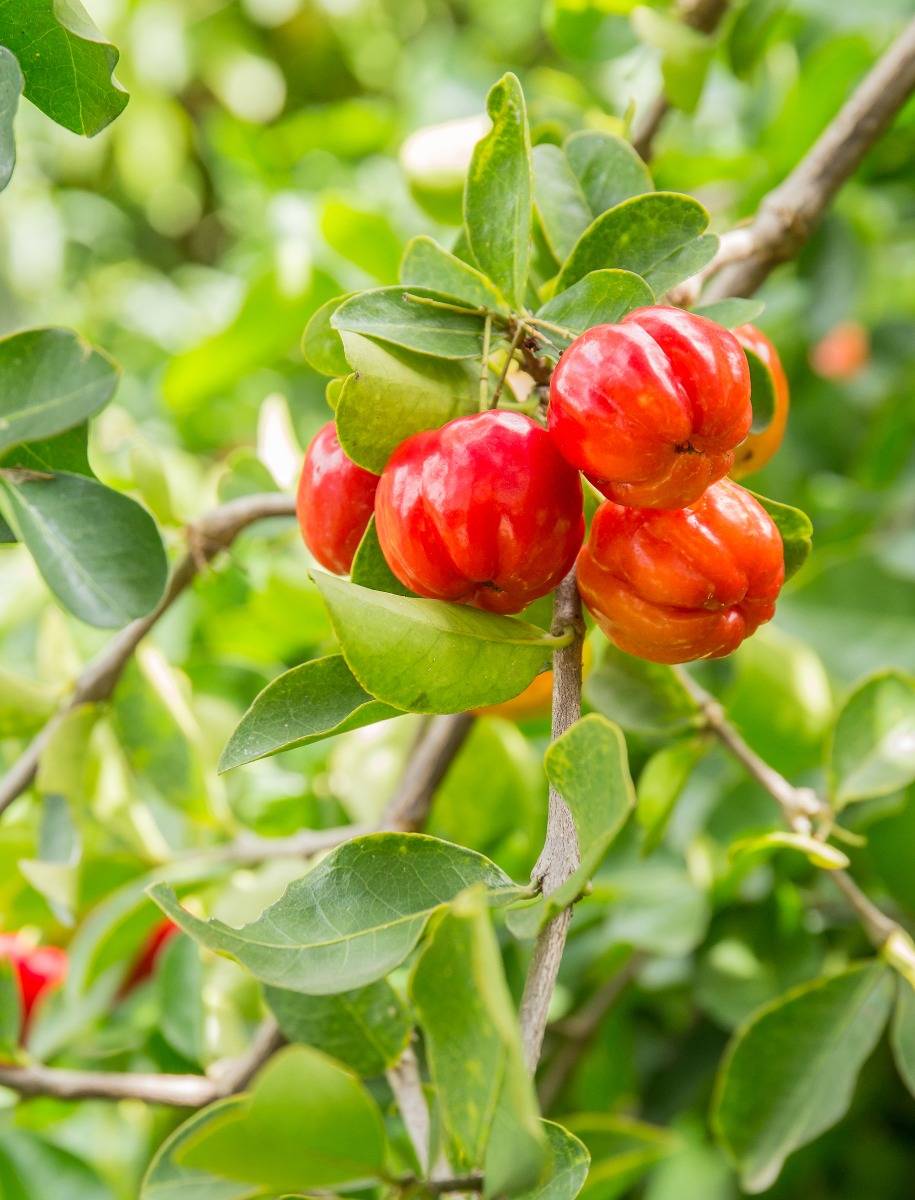
ACEROLA

Latin names :
Malpighia glabra, Malpighia punicifolia
Common names :
Acerola, West Indian cherry
Family :
Malpighiaceae
Origin :
South America, Caribbean
Part of the plant used :
Fruit
Description
From Malpighia punicifolia, a shrub of the Malpighiaceae family native to South America, the acerola fruit, also known as the burdock cherry, is known for its health benefits, particularly due to its high vitamin C content, which is 20 to 30 times higher than that of an orange.
Acerola also contains vitamin A and various B vitamins, including B1, B2, B5 and B6. The fruit contains minerals: calcium, magnesium and potassium, but also antioxidant molecules such as polyphenols, and more particularly flavonoids, including quercetin. Carotenoids and anthocyanins, other molecules with antioxidant properties, reinforce the beneficial effects of acerola.
Thanks to these molecules and in particular to its high vitamin C content, acerola is an excellent ally against fatigue. This fruit with antioxidant and anti-ageing properties boosts the body's natural defences and stimulates the immune system.
The benefits
Acerola contributes to a normal energy metabolism and helps the immune system to function properly. The vitamin C contained in this fruit helps to reduce fatigue.
Furthermore, acerola contributes to the proper functioning of the nervous system to ensure normal psychological functions.
Acerola also plays a role in the normal formation of collagen to ensure the normal functioning of bones, cartilage, teeth, gums, skin and blood vessels. In addition, acerola promotes the absorption of iron.
Scientific publications
Acerola is the subject of more than 733 scientific publications.
Our products based on Acerola
-
€14.10
-
€107.70
-
€20.90
-
€24.90















Recommandé par mon médecin, je l'utilise régulièrement, avec de tvoir plus
Avis du 28/09/2024, suite à une expérience du 11/09/2024 par Silvia S